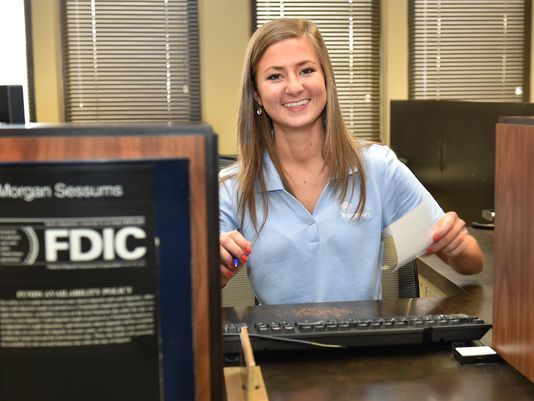Gambling Operators Are Called On to Turn Off Their Lottery Terminals and Gambling Machines for a Day; Citizens Urged to Stop Gambling for One Day and Deposit the Money They Would Have Gambled in a Bank or Credit Union
#TakeaGamblingBreak
WHAT:
1) If you buy state lottery tickets, use electronic gambling machines, gamble online or at regional casinos, just stop for one day. Take the money you would have risked and deposit it into a bank or credit union account. If you don’t have an account, open one.
2) Any store, restaurant or regional casino operator that offers lottery tickets, electronic gambling machines, or any other form of gambling, is asked to stop for one day..
3) If you have a loved one or a good friend who is an active gambler, be a sponsor for the one day. As a sponsor, your role is to help your loved one or friend stay away from gambling for the day, encourage them to put the money they would have risked into a bank or credit union (if they don’t have an account, show them how to create one,) and help them participate in other activities to substitute for gambling.
WHY:
1) To spotlight the 40 million Americans who have been harmed by the greed of big gambling operators. This growing campaign first began in Oregon more than 25 years ago out of the work of Ronda Hatefi, a member of Stop Predatory Gambling. Ronda’s brother Bobby Hafemann committed suicide because he became addicted to the Oregon Lottery’s electronic gambling machines. Every year on September 29th, her late brother’s birthday, Ronda has organized a day to spotlight the serious harm the state’s gambling machines were inflicting on citizens and their families.
2) To awaken the public consciousness about how the widespread promotion and availability of extreme forms of commercialized gambling is a major factor behind the financial hardship and unfairness of opportunity facing millions of American families today.
3) To educate Americans on the truth that financial peace occurs most often from the act of regularly saving small sums of money over the long-term.
4) To give families and friends a way to start a conversation about the problem of commercialized gambling with the people they love.
5) To offer an opportunity for commercialized gambling operators to acknowledge they have a duty of care for citizens.
KEY FACTS:
– Americans are on course to lose more than $1 trillion of their personal wealth to commercialized gambling over the next eight years.[1] Many of these citizens are suffering life-changing financial losses.
– Commercialized gambling is a dangerous and addictive product, now recognized as an addiction on the same level as heroin, cocaine, and opioids in the American Psychological Association’s DSM V, used by health care providers and insurers as the principal source for mental health diagnoses.
– Citizens who are financially desperate look to commercialized gambling as a way to improve their lives and help them escape their financial condition.[2] It’s become a Hail Mary investment strategy, one that dooms them to inevitable failure and personal debt. This is a critical issue because asset-building, the opposite of commercialized gambling, is almost non-existent for nearly half of the nation’s population.
– More than 40 million Americans have been harmed by the greed of big gambling operators.
– All taxpayers, regardless whether they ever gamble, end up paying higher taxes for less services, and the state ends up with worse budget problems over the long term because of commercialized gambling. It’s the ultimate budget gimmick.[4] You pay even if you don’t play!
– Commercialized gambling is an antiquated, outdated public policy and a relic of past failures of leadership. Each year state governments spend more than $1 billion of public money marketing gambling to the most financially-disadvantaged citizens. The state’s gambling monopolies are exempt from truth-in-advertising laws, allowing them to grossly exaggerate the chances of winning and lure citizens into losing their money on gambling games that they are mathematically guaranteed to get fleeced.[5]
– The nation’s political elite – from both political parties- have transformed gambling from a private and local activity into the daily public voice of state government, such that ever-increasing appeals to gamble, and ever-expanding opportunities to gamble, now constitute the main ways that our state governments communicate with us on a daily basis. Nothing else comes even close.
Stop Predatory Gambling: Who We Are
A 501c3 non-profit based in Washington, DC, Stop Predatory Gambling is a national advocacy network of individuals and organizations working to reveal the truth behind gambling operators to prevent more victims.
[1] This is how much Americans lost on state-sanctioned gambling last year Quentin Fottrell of MarketWatch, published by Dow Jones Media, May 15, 2018.
[2] Cornell Univ. Professor David Just, The big swindle: In lotteries, the poor are the biggest losers, CNN, Dec. 18, 2013
[3] National Institute for Health, May 2011
[4] Lucy Dadayan, State Revenues from Gambling: Short-Term Relief, Long-Term Disappointment, The Nelson A. Rockefeller Institute of Government (2016)
[5] This is how much Americans lost on state-sanctioned gambling last year, The Wall Street Journal’s Marketwatch, May 15, 2018

